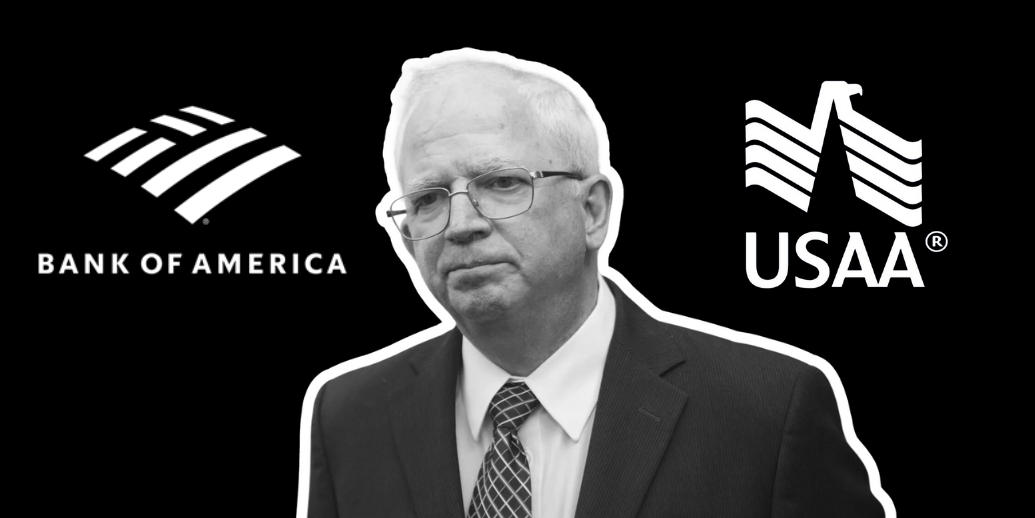An attorney who worked for former President Donald Trump has found himself de-banked by two prominent financial institutions, the Daily Caller has learned. John Eastman, a conservative lawyer who advised Trump around the time of the 2020 election, was notified by Bank of America and USAA that his accounts would be closed without notice or explanation. This situation raises concerns that banks are targeting clients based on their political beliefs.
Eastman, who had been using Bank of America for over 40 years, said he switched most of his banking to USAA due to the former's "wokeness." However, in September of 2023, Bank of America alerted him that his accounts would be closed. Shortly thereafter, USAA also notified him that his two accounts with the company would be closed. When inquiring about the closures, both banks refused to provide any further information.
De-banking is a trend in which financial institutions refuse service to clients based on their political beliefs. Eric Bledsoe, an expert on de-banking, stated that banks are using "non-financial factors" in their decision-making, and this can make it harder for individuals and businesses to function. In typical de-banking situations, banks do not reveal their reasons for closing accounts.
Eastman believes that his de-banking is due to backlash from his work advising Trump after the 2020 election. He has faced challenges, such as being forced to resign from his position as a law professor at Chapman University and being barred from speaking at the University of Colorado. He and his wife have also received death threats and have had spikes planted in their driveway.
The situation has caught the attention of several state attorneys general, with many pointing to politics as a likely reason for Eastman's de-banking. They argue that no American should lose their bank account due to banks wanting to play politics. Some also warn that de-banking could potentially violate state and federal laws.
Eastman's situation has raised concerns about the use of banks to target and silence political opponents. Sam Brownback, an attorney and former U.S. Senator, who was also de-banked by a Christian non-profit, believes this trend is harmful and prohibits individuals from bringing their values into the marketplace. He feels that this is something that will have to be fought against.
On March 27, a California judge ruled that Eastman should be disbarred due to his role in advising Trump after the 2020 election. The case will now move to the state Supreme Court for a final decision. However, Eastman's de-banking by two major financial institutions is raising questions about the motivation behind these decisions and whether they are politically motivated.
Concerns have also been raised about the lack of transparency and accountability in the de-banking process. Eastman was not given any explanation for the closure of his accounts, making it difficult for him to appeal the decision or take any further action. This lack of transparency could have serious consequences for individuals and businesses, impacting their ability to function and participate in the marketplace.
The trend of de-banking and its potential for targeting individuals and businesses based on their political beliefs is a concerning development. It raises questions about the role of financial institutions in the political sphere and the need for greater transparency and accountability in the de-banking process. The situation involving John Eastman serves as a reminder of the importance of protecting individuals' rights to bring their values and beliefs into the marketplace without fear of discrimination.

